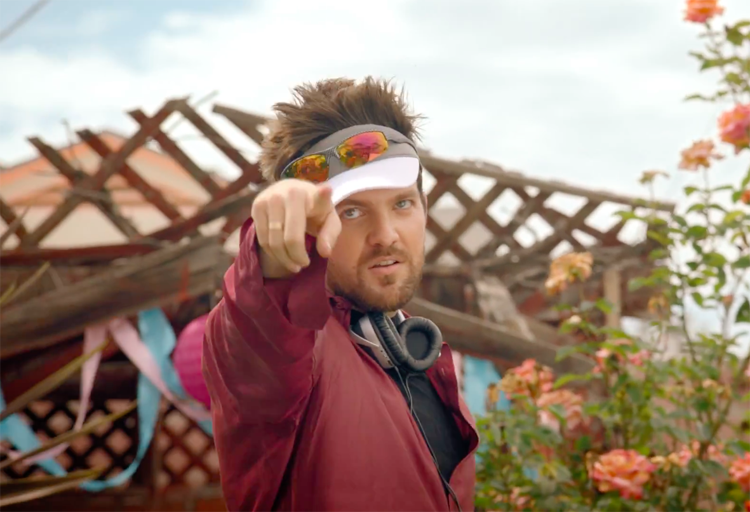A modern, independent music producer’s arsenal of promotional tools looks very different from what it would have a mere decade ago. Instead of record deals determining their fate, artists today turn to their Facebook and Twitter accounts to update fans about new releases and live performances; Soundcloud, Bandcamp and Spotify serve as the actual platforms to debut songs to the public, in conjunction with sites like HypeM and Toneden, which force listeners to interact with their pages before they’re granted access to a free download; and their Instagram and Snapchat accounts allow fans to get a personal view of their life at home, time spent in the studio or general hijinks during their days off.
According to ex-A&R director for Moonshine Music Jon Grauman, however, the necessity for artists to occupy this much Internet space is a startlingly recent development in the grander scope of the music industry model.
“It’s a complete and total reinvention of itself,” he said over the phone. “The old model doesn’t even exist.”
The uprising in Internet and social media usage over the last decade has allowed small, independent producers to reimagine the traditional music industry formula. Because the market has evolved into a global and instantaneously accessible entity, careers are now made or broken via the solidity of artists’ online relationships with both their listeners and fellow collaborators.
In order for the music industry to be able to host such innovative movements, however, a nearly 15-year period of tumultuous transition had to take place. Beginning in 2003, the introduction of more sophisticated technologies began to break down the standard model of monetization that artists and major record labels had come to rely on, Grauman said.
“2003 was really the dawn of Napster,” said Grauman. “It was the start of CD burning, file sharing, illegal downloading; everything that really crippled the record industry. It was a really scary time to be in that business.”
Grauman equated the record industry’s circumstances to the mortgage crisis of 2008; it was intractable despite the online markets’ attempts to reconcile and create partnerships. This failure to adapt ultimately led to a surge of new monetization methods on the part of the artists, who began to shift away from conventional record sales as their primary mode of compensation, Grauman said.
“Artists have almost abandoned the idea of making money through the record business, so to speak,” said Grauman. “They make their money through touring, selling ‘merch,’ and licensing.”
Since the Internet first shouldered its way into the industry, creators’ focus has turned away from simply selling their music. Instead, it’s been redirected towards presenting themselves in the public space as an entity or brand that listeners want to wear, represent, share with friends and watch perform live.
“Technology has offered two things,” said Grauman. “It’s offered the ability for more and more people to make music, and the ability for that music to become available all over the world.”
Simply put, the music industry no longer hangs on the number of records sold. Music is now released in interesting and strategic ways, both for free and purchase, as a means to affect and boost the real moneymaker: the artist’s reputation and relationship with their listeners.
Accessibility and aesthetic appeal now stand as two of the most valuable forms of currency in the business. It is for this reason that the “free” music in the official space has become just as meaningful and valuable as the paid-for records. Since a track’s worth is no longer determined simply by the number of sales it receives, the need to rethink the way we gauge and compare pieces of music to each other in charts and award shows is becoming more and more pressing.
Recently, a new petition was created on Change.org that seeks to allow free music to become eligible for Grammy consideration. The page’s description reads as follows:
Ridiculously talented artists who are releasing free mixtapes and projects are not getting the recognition they truly deserve because the National Academy of Recording Arts and Sciences insists that to be eligible for a prestigious Grammy Award that the music must be “commercially released in general distribution in the United States, i.e. sales by label to a branch or recognized independent distributor, via the Internet, or mail order/retail sales for a nationally marketed product. Recordings must be available for sale from any date within the eligibility period through at least the date of the current year’s voting deadline (final ballot).” This means that artists like Chance the Rapper, who are now getting national recognition and performing on national platforms (just this past week Chance performed on the Jimmy Fallon show) are being punished for making their music available to everyone, rich or poor, by releasing their music for free. It’s obvious that these artists are making their music more accessible to people who deserve it even if they can’t afford it, as well as decreasing pirating and illegally downloading music. Not all artists should be forced to release their music for free, but the ones who do should not be punished for doing so.
With nearly 30,000 signatures out of the proposed 35,000 already acquired, the movement appears to be gaining significant traction among supporters who’d like to see the consideration process expand to include the less conventional artists and their free releases.
The petition signifies a real shift in the way fans and more traditional industry veterans are attempting to shape the future of the business. A substantial divide exists between those who want to pull the culture back into the days of record sales as the backbone of the industry and those who want to break it down and acknowledge other factors of the releases when attempting to categorize them. It will be up to efforts like the one behind this petition to influence and inspire a new generation of industry practices.









